HS-LS2-6
Evaluate the claims, evidence, and reasoning that the complex interactions in ecosystems maintain relatively consistent numbers and types of organisms in stable conditions, but changing conditions may result in a new ecosystem.
-
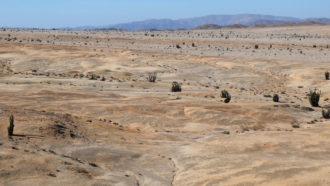 Ecosystems
EcosystemsNewfound desert soil community lives on sips of fog
Lichens and other fungi and algae team up to form a 'grit-crust' on the parched soil of Chile’s Atacama Desert. Those species slake their thirst with moisture from coastal fog.
By Jack J. Lee -
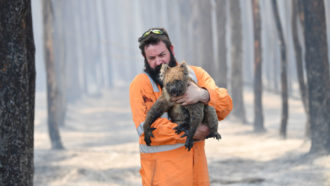 Environment
EnvironmentAustralian fires have imperiled up to 100 species
As massive wildfires consume huge swaths of Australia’s bush, untold species — many of them found nowhere else — are now threatened with extinction.
-
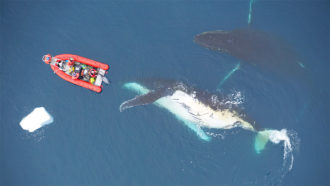 Life
LifeWhy some whales become giants and others are only big
Being big helps whales access more food. But just how big a whale can get is influenced by whether it hunts or filter-feeds.
-
 Microbes
MicrobesGlobetrotting microbes in airplane sewage may spread antibiotic resistance
Along with harder-to-kill microbes, airplane sewage contains a diverse set of the genes that let bacteria evade antibiotics.
-
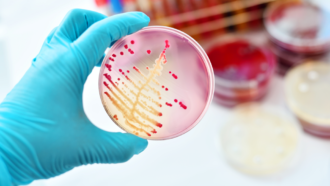 Microbes
MicrobesDrug-resistant germs kill some 35,000 Americans each year
The new mortality rate may be way low, some experts say. Also troubling are two new germs that have emerged as big and urgent threats.
-
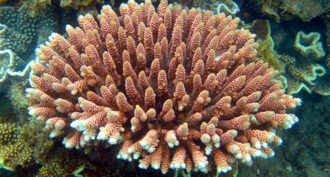 Oceans
OceansOcean heat waves are on the rise — and killing coral
Ocean heat waves are becoming hotter and more frequent. And one can be blamed for the 2016 coral deaths on the Great Barrier Reef.
By Dan Garisto and Carolyn Gramling -
 Materials Science
Materials ScienceLight could make some hospital surfaces deadly to germs
A new surfacing material can disinfect itself. Room lighting turns on this germ-killing property, which could make the material attractive to hospitals.
-
 Health & Medicine
Health & MedicineAnalyze This: Flu vaccine’s protection varies
Getting a flu shot every year is an important way to protect yourself and those around you — even if the vaccine isn’t 100 percent effective.
-
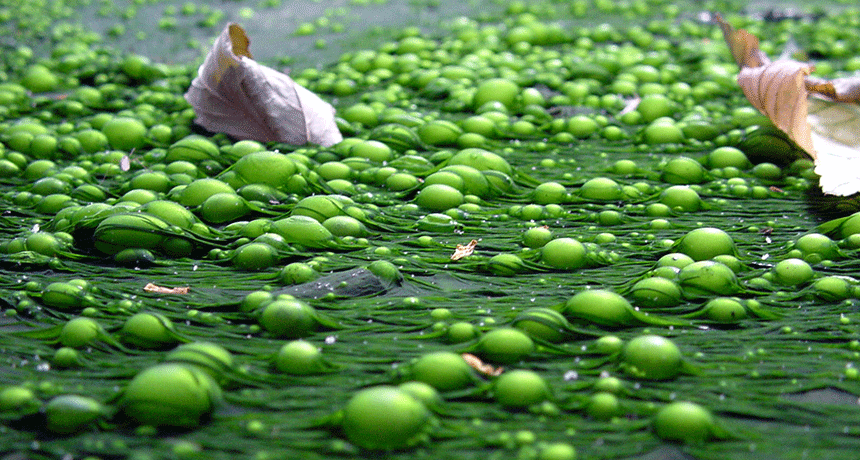 Plants
PlantsExplainer: The fertilizing power of N and P
Two elements — nitrogen and phosphorus — help plants grow. When the soil doesn’t have them, farmers might add them in the form of fertilizer.
-
 Physics
PhysicsDisabilities don’t stop these experts in science and tech
People with disabilities are as varied as the careers some of them pursue in science, technology, engineering and math.
-
 Life
LifeCities drive animals and plants to evolve
Biologists are finding that some species have used genetic changes to evolve — adapt — to the pollution and other stressors that they encounter in cities.
-
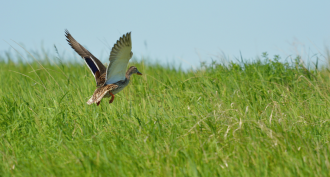 Ecosystems
EcosystemsAmerica’s duck lands: These ‘potholes’ are under threat
North America’s prairies are in trouble. Scientists race against the clock for clues about how to save the plants — and animals — that call it home.